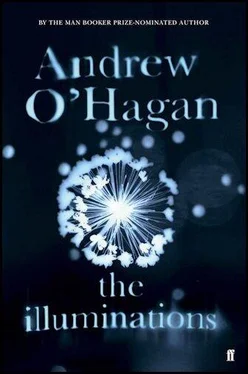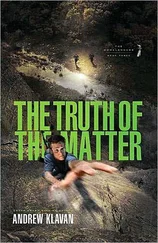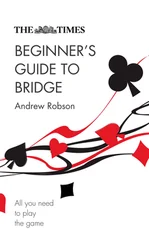‘Who, Anne? Who’s waiting for a cheque?’
‘A nice man and his wife.’
‘And who are they?’
‘Never mind,’ Anne said. ‘I’ll do it myself.’ They walked on and Maureen told herself not to take it personally. It was part of the illness. She could only do what she could do. Anne had her own wee things to contend with and didn’t really need the post office.
Alice lived up the coast and Maureen knew it had been a risk to phone her that morning. But she thought Alice might like to drive down and take over after lunch. It was a stressful situation because Anne undervalued her daughter, as she heard said on
television, and the daughter had self-esteem issues and the family was dysfunctional. But two wrongs don’t make a right and what doesn’t kill you makes you stronger. Maureen sometimes heard herself sounding like a wise person on a talk show and it made her feel modern that she understood people’s problems. ‘I think it’s healing the way you always tried to keep in step with your grandson,’ she said.
‘In step?’
‘Yes, with Luke. Before he went into the army.’
‘Books,’ Anne said. ‘He studied literature and it was lovely stuff.’
‘You read all those books?’
‘Oh, yes. We used to buy them at Dillon’s. And we’d discuss them when he came over to visit me.’
‘It’s a surprise when a boy like that chooses the army.’
‘I thought he’d be a somethingologist,’ Anne said, ‘but men don’t always get to be what they want to be.’
On their way down Sidney Street, Maureen told Anne it would do her good to see her daughter. ‘She just wants to put me in a home,’ Anne said. ‘She just wants to get the keys to the flat.’
‘That’s not true, Anne. They wouldn’t give her the keys. Our place isn’t for young people.’
Maureen thought it was a true saying: you can choose your friends but you can’t choose your family. Anne looped her arm through hers and they stopped in at the newsagent so that Maureen could buy some mints. The magazine rack was full of faces that Maureen knew off the telly and Anne stared past the men’s magazines to a shelf stacked to the ceiling with Airfix boxes.
The Candy Bar wasn’t busy. Maureen was all smiles, leading Anne by the arm through a group of empty tables. ‘We’re waiting
for a part in
Charlie’s Angels
,’ she said to the waitress, ‘so mind and keep the strawberry tarts away from us today. We’re watching the figure.’ Maureen peeled off her friend’s coat and put the scarf inside the sleeve. She sniffed the scarf before tucking it in, liking the perfume, the essence of Anne. Then she went round to her own side and placed her purse on the table.
‘This is my treat. Ian left me a wee tenner this morning so we’ll let him buy us our tea.’
Anne was looking at the light coming off the teaspoons. It was a familiar process for her, looking at objects and the way the light picked them out and changed them. Her mind fell back to when she first met him. He was giving a talk about documentary photography and capturing life on the street. He spoke at the Masons’ Hall not far from the tower and his cheeks were flushed as he stood on the stage.
You were a lovely speaker. You had the audience in the palm of your hand for the best part of two hours.
They went for a drink at the Washington Arms that night and he began to tell her a story about himself, a story that never ended. Even after he died the story continued and became something she added to herself. She liked to think of him walking on the promenade with his back to where he was going, looking at her, talking with his hands.
A man called Cotton worked at the Air Ministry. That’s right. He got planes off the ground, Spitfires and Blenheims. Your eyes burned naming them. You were never a bad man, Harry. Not really. The planes did photographic intelligence at a height of 30,000 feet. They were the first, the first of their kind you said and I’m saying watch where you’re going. You nearly tripped. It seems there was fog and snow over Germany …
‘Anne, that’s the salt, hen. Not the sugar.’ Maureen was smiling as if to say that it didn’t matter. Anne had ripped the salt sachet instead of the sugar and poured it into her tea.
‘It’s nae bother,’ the girl said and she took the mug away and came back with a fresh one.
‘We stopped for ice-cream,’ Anne said, remembering Harry. She could see his scarf blowing in the wind. ‘There was a jukebox inside and it played the new music.’
Maureen stirred her coffee and then turned her attention to something new. She spoke with a changed expression. ‘I’m worried about my three. It’s these children they have. They run riot.’
‘Grandkids is the good bit,’ Anne said. ‘You can love them but you don’t have to take all the blame.’
‘And that Kirsty one. Ian’s wife. She hired an au pair. An
au pair
, just to look after the child while she goes to the hairdresser.
The hairdresser
I mean, is it me, Anne? Is it me that’s half-daft? Weak. They got that from their father: they can’t stand up to these women.’
‘Are you divorced, Maureen?’
‘Oh, years ago. He’s dead, to me anyhow. Lives in Stirling with someone. I don’t want to know. They can’t pull the wool over my eyes.’
‘You like being upset, don’t you?’ Anne said. The question came innocently and Maureen thought it was part of her illness.
‘Families,’ she replied. ‘They take it out of you. If I won the lottery I think I’d just go and lose myself in Spain. To hell with the lot of them. They could come and find me.’
‘Harry flew planes during the war,’ Anne said. ‘His were called Lysanders.’
‘Is that right?’
‘They flew in secret out of a place in Devon. All hush-hush. That’s how he learned his trade, going into Germany and France during the night to take pictures of factories and docks. They got medals because every night they put their lives at risk, eh? That was Harry.’
‘That’s something to be proud of, Anne.’
‘I think it was hard for those men to live with what they’d done. Keeping it secret all the time.’ Anne said it softly.
‘Are you all right, Anne?’
She drew a deep breath and made a motion with her hand. ‘There used to be a lovely gypsy in Blackpool who could tell your future.’
It was amazing to talk to Anne. She had all these pieces in her life that didn’t really fit together, and when she was talkative she said things that made you think her life had been quite complete. Yet everybody has their problems. Maureen didn’t know what the trouble in Anne’s family was all about but she knew instinctively how to treat it as important. Alice came into the cafe looking nervous, looking televised, unwinding her beautiful scarf as she walked to the table. She’ll be on one of her diets and won’t want any cake, thought Maureen.
VIDEO GAMES
Alice’s doctor in Troon had said something lasting. He said the thing with dementia was that it trapped the sufferer in vagueness and spoiled the offspring’s hopes for a satisfying closure, especially if the relationship had been difficult. Alice had lived with a mother who thought her daughter lacked something, and now,
aged fifty, Alice wondered if she couldn’t mount one last attempt to change her mind.
The problem was that Alice slightly agreed with her mother’s view of her. Anne possessed a little mystery and a good imagination while Alice had always been a little demon of reality. Even as a teenager Alice could see those traits in herself: first to correct, last to believe, and always resistant when asked to imagine the impossible. She wanted proof that something was valuable, needed evidence beyond the word of some artist, and for years she prided herself on this distrust, as if it was a gift to be so hard to fool. Nowadays, when she looked in the mirror and pouted and shook her hair, she sometimes got a glimpse of the person other people saw, a certain sourness, a gleam of small-mindedness. Alice knew she was better than her demeanour, but it was hard to prove.
Читать дальше











